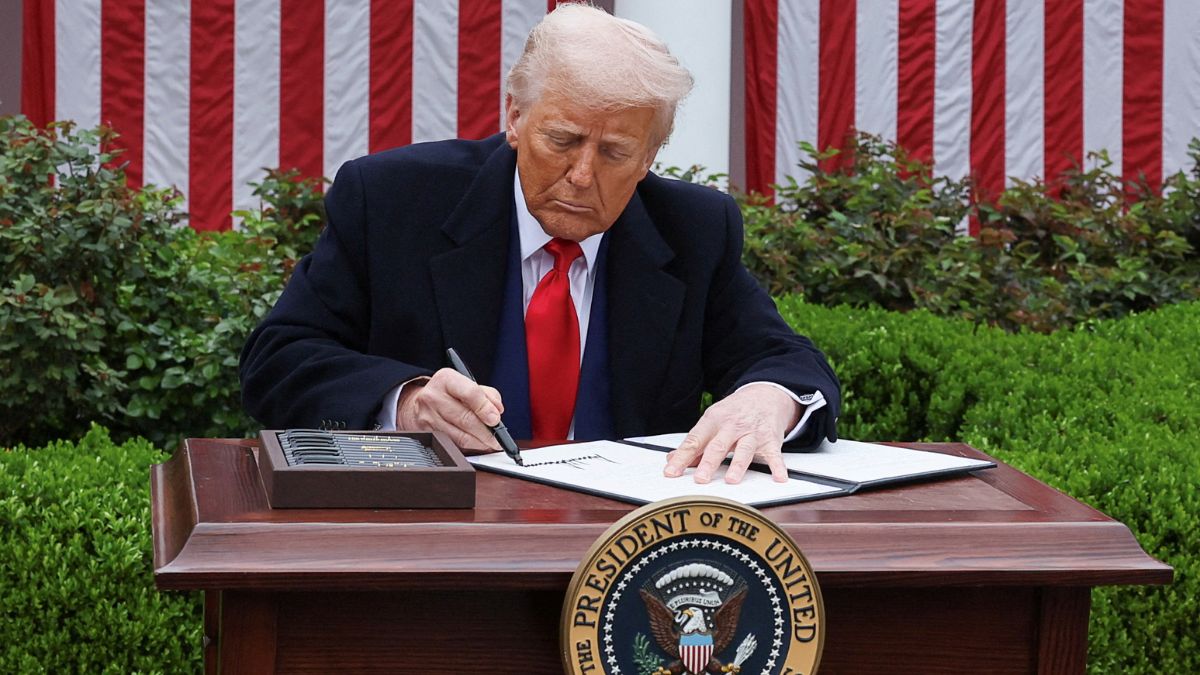The White House on Thursday clarified that goods coming from China to the US are now subject to at least a 145% tariff.
According to a CNN report, the 125% “reciprocal” tariff announced by President Donald Trump on Wednesday will be added to the existing 20% tariff on Chinese goods.
The White House said that the tariffs are cumulative, confirming earlier uncertainty over whether the new rate would be applied separately.
Trump has tied that 20% tariff to illegal immigration and the flow of fentanyl into the US, which he’s accused China of playing a role in, added the report.
Trump also hiked the tariffs on goods less than $800 coming from China to 120% as of May 2.
The move marks another escalation in US trade policy toward China even as President Trump earlier climbdown from a wider tariff onslaught against the rest of the world.
On Wednesday, Trump announced a 90-day pause on new tariffs for most countries but increased tariffs on China to 125% effective immediately, ratcheting up his tit-for-tat with Beijing.
Taking to Truth Social on Wednesday, Trump wrote, “Based on the lack of respect that China has shown to the World’s Markets, I am hereby raising the Tariff charged to China by the United States of America to 125%, effective immediately. At some point, hopefully in the near future, China will realize that the days of ripping off the U.S.A., and other Countries, is no longer sustainable or acceptable.”
He said that more than 75 countries had asked for negotiations over the tariffs.
“Conversely, and based on the fact that more than 75 Countries have called Representatives of the United States, including the Departments of Commerce, Treasury, and the USTR, to negotiate a solution to the subjects being discussed relative to Trade, Trade Barriers, Tariffs, Currency Manipulation, and Non Monetary Tariffs, and that these Countries have not, at my strong suggestion, retaliated in any way, shape, or form against the United States, I have authorized a 90 day PAUSE, and a substantially lowered Reciprocal Tariff during this period, of 10%, also effective immediately,” he added.
Impact Shorts
More ShortsTrump’s decision to raise tariffs to 125% followed China’s retaliation, which saw tariffs on U.S. imports increase to 84% in response to his earlier hike that pushed duties on Chinese goods to 104%.
The superpower standoff cast a heavy shadow over the relief that followed Trump’s decision to back down from imposing steep tariffs on a wide range of countries — from European Union allies to Asian manufacturing hubs like Vietnam, and even small, remote island nations.
While Trump kept a blanket 10% tariff in place for most countries, his decision to hold off on harsher measures against Europe led the EU to suspend its plans for retaliatory tariffs.
With inputs from agencies


)

)
)
)
)
)
)
)
)



